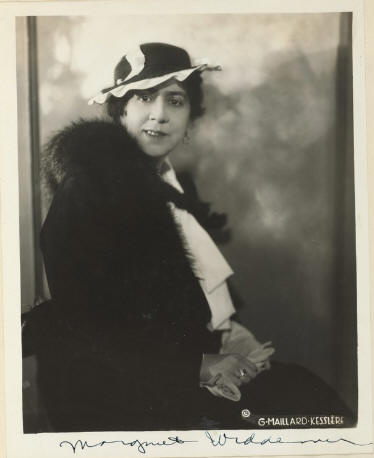 Margaret Widdemer (September 30, 1884 – July 14, 1978) was an
American poet and novelist. She was a member of the
Heterodoxy Club.
Margaret Widdemer (September 30, 1884 – July 14, 1978) was an
American poet and novelist. She was a member of the
Heterodoxy Club.Queer Places:
1 W 67th St, New York, NY 10023
21 Larchmont Ave, Larchmont, NY 10538
 Margaret Widdemer (September 30, 1884 – July 14, 1978) was an
American poet and novelist. She was a member of the
Heterodoxy Club.
Margaret Widdemer (September 30, 1884 – July 14, 1978) was an
American poet and novelist. She was a member of the
Heterodoxy Club.
Widdemer won the Pulitzer Prize (known then as the Columbia University Prize) in 1919 for her collection The Old Road to Paradise, shared with Carl Sandburg for Cornhuskers.[1][2][a] The editors of Poetry, Harriet Monroe and Alice Corbin Henderson included in their 1917 selection for The New Poetry: An Anthology poems by Margaret Widdemer. According to Adrienne Munich and Melissa Bradshaw, authors of Amy Lowell, American Modern, what connects these poets is their appartenance to the queer sisterhood.
Margaret Widdemer was born in Doylestown, Pennsylvania,[3] and grew up in Asbury Park, New Jersey, where her father, Howard T. Widdemer, was a minister of the First Congregational Church. She graduated from the Drexel Institute Library School in 1909.[4] She first came to public attention with her poem The Factories, which treated the subject of child labor. In 1919, she married Robert Haven Schauffler (1879–1964), a widower five years her senior. Schauffler was an author and cellist who published widely on poetry, travel, culture, and music. His papers are held at the University of Texas at Austin.

Widdemer's memoir Golden Years I Had recounts her friendships with eminent authors such as Ezra Pound, F. Scott Fitzgerald, T. S. Eliot, Thornton Wilder, and Edna St. Vincent Millay.
The scholar Joan Shelley Rubin has surmised that Widdemer coined the term "middlebrow" in her essay "Message and Middlebrow," published in 1933 in The Saturday Review of Literature.[5] However, the term had previously been used by the British magazine Punch in 1925.[6]
Widdemer died in New York City, in 1978.
My published books: